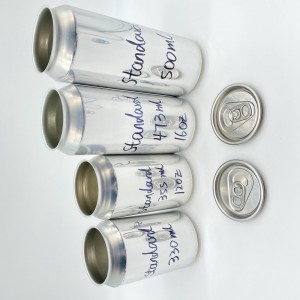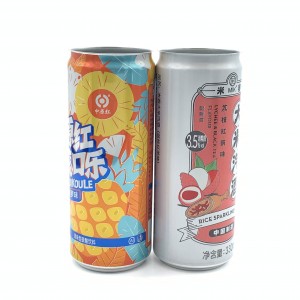The importance of BPA-free aluminum cans :a step towards healthier choices
Discussions surrounding food and beverage packaging have gained significant attention in recent years, particularly regarding the safety of the materials used in cans. One of the most pressing concerns is the presence of bisphenol A (BPA), a chemical commonly found in aluminum can linings. As consumers become more health-conscious, demand for BPA-free aluminum cans has surged, prompting manufacturers to rethink their packaging strategies.
BPA is an industrial chemical that has been used in the production of certain plastics and resins since the 1960s. It is often found in the epoxy resin liners of aluminum cans, where it helps prevent corrosion and contamination of the food or drink inside. However, research has raised concerns about potential health risks associated with BPA exposure. Research has linked BPA to a variety of health problems, including hormonal disruptions, reproductive problems and an increased risk of certain cancers. As a result, many consumers are now looking for alternatives that do not contain this controversial chemical.
The switch to BPA-free aluminum cans isn’t just a trend; It reflects a broader movement toward healthier and safer consumer products. Major beverage companies including Coca-Cola and PepsiCo have begun phasing out BPA from packaging to meet consumer demand for safer options. This shift not only benefits public health, but can also be a competitive advantage in a market increasingly driven by health-conscious consumers.
The benefits of BPA-free aluminum cans extend beyond personal health. The environmental impact of packaging materials is another important consideration. Aluminum is one of the most recyclable materials and if produced responsibly it can significantly reduce the carbon footprint associated with beverage packaging. By choosing BPA-free options, companies can also align their practices with sustainability goals and appeal to environmentally conscious consumers.
Additionally, the move toward BPA-free cans has sparked innovation in the packaging industry. Manufacturers are exploring BPA-free alternative lining materials, such as plant-based paints and other non-toxic substances. This not only improves product safety, but also encourages the development of new technologies, further improving the sustainability of packaging.
Consumer awareness plays a crucial role in this shift. As more people learn about the potential dangers of BPA, they are more likely to make informed choices when purchasing beverages. Labeling “BPA-free” has become an important selling point, and companies that prioritize consumer health are likely to gain a loyal customer base. This shift in consumer behavior has prompted retailers to stock more BPA-free products, further driving demand for safer packaging solutions.
However, the process of completely eliminating BPA from aluminum cans is not without its challenges. The costs of developing and implementing new lining materials can be high, and some manufacturers may be hesitant to invest in these changes. Additionally, regulatory frameworks vary by region, which may complicate standardization of BPA-free practices across the industry.
In conclusion, the importance of BPA-free aluminum cans cannot be overstated. As consumers become increasingly aware of the potential health risks associated with BPA, demand for safer packaging options continues to grow. This shift not only benefits personal health but also promotes environmental sustainability and innovation in the packaging industry. As we move forward, manufacturers, retailers and consumers must work together to create a safer, healthier future.
Erjin packaging can: 100% food grade inner coating, epoxy and bpa free, classic wine inner coating,19 years of export production experience, welcome to consult
Post time: Oct-10-2024








